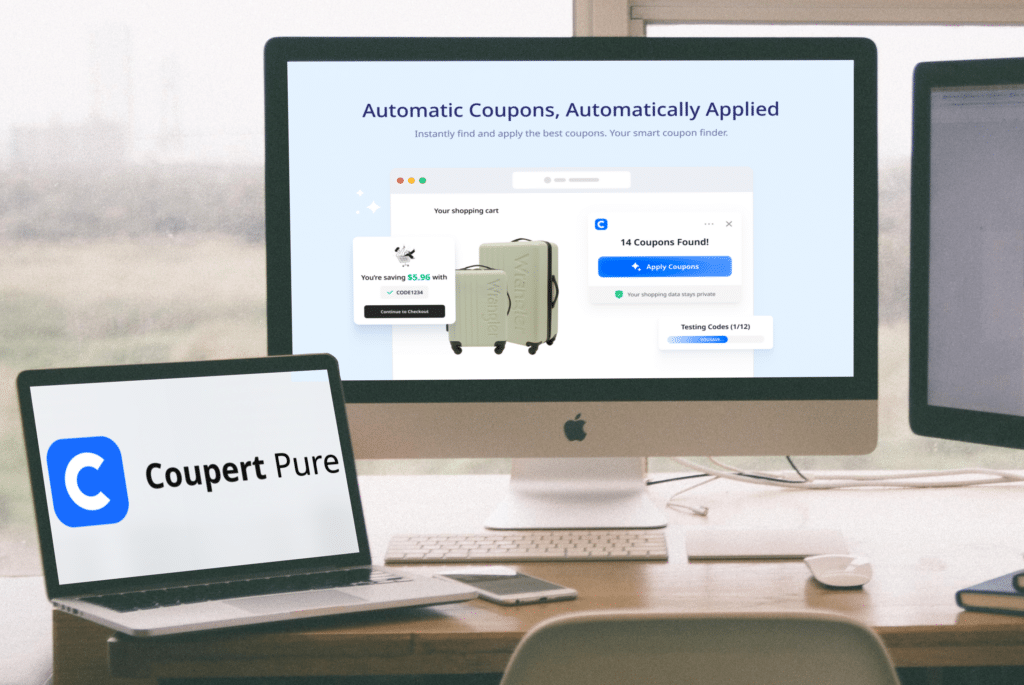
Whether you call it an authentic response to consumer concerns, or a savvy way to leverage a controversy to its own advantage, a coupon browser extension provider has unveiled a new offering it says will help users feel better about searching for coupons online.
The coupon aggregator Coupert, based in Hong Kong and available around the world, has introduced what it’s calling “Coupert Pure.” The “pure” version of its existing browser extension is “designed for users who care about privacy and efficiency,” Coupert says.
Both the new and original extensions automatically search for coupons when you shop online. But the new version takes a back-to-basics approach – Coupert promises it really will search for all available coupons, and really will apply the one that provides the best savings. Coupert Pure works without business partnerships that might otherwise incentivize Coupert to offer you coupons that its retail partners would prefer, even if they aren’t the most valuable offers out there.
“While most coupon extensions rely on affiliate commissions, often prioritizing offers that generate revenue, Coupert Pure takes a different approach,” Coupert explains. “It completely removes affiliate monetization and ranks all coupons based solely on how much they help users save. This ensures an unbiased experience focused entirely on user benefit — not commercial gain.”
Those affiliate partnerships are at the center of several ongoing legal disputes, which claim the business arrangements are not adequately disclosed, don’t provide users with the best available savings, and divert sales commissions from others who initially recommended the product being purchased. Online influencers first went after PayPal, claiming its Honey coupon extension stole commissions that they were owed. Later lawsuits also accused Honey of misleading users into believing “they were getting the best available discounts when in fact, they were not.” Instead, Honey might offer only the coupons its retail partners would like it to recommend.
Similar allegations were made in dozens of subsequent lawsuits against Capital One, Microsoft Shopping, RetailMeNot, Rakuten and Klarna.
You generally can’t get something for nothing, though. Affiliate partnerships are what make most coupon browser extensions profitable – if a coupon that an extension finds for you prompts you to make a purchase, the extension publisher earns a commission. That’s how they can afford to do the work of searching for coupons for you.
So how can Coupert Pure make money for its owners, then, without those affiliate deals?
By charging you for it. After a three-day trial period, Coupert Pure will cost you $2.99 a month, or $22.99 a year. Coupert claims its average user saves more than $27 a month, so it’s betting that users concerned about affiliate marketing deals influencing the savings they’re offered – and the commissions that online influencers say they’re being denied – will think Coupert Pure is worth it.
With privacy protection, no data sharing and a platform that’s free from commercial influence, “the entire experience is safe, transparent, and under user control — giving users peace of mind when shopping online,” Coupert pledges.
They say you have to spend money to make money. Coupert is about to find out whether the promise of a “clean” shopping experience is enough to get people to spend money to save money, too.
Image source: Coupert/Mockuper










